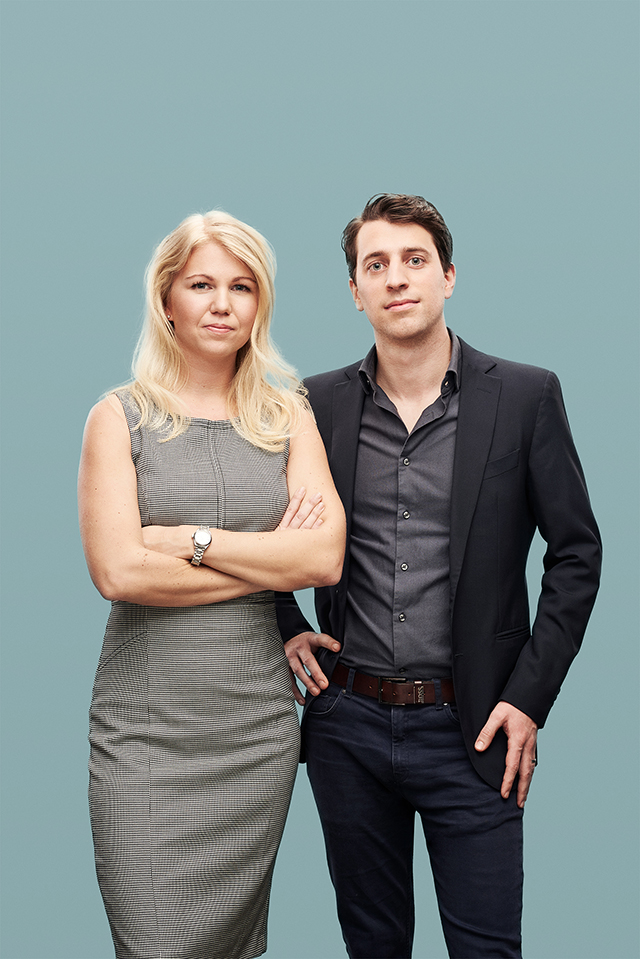Challenger to Watch: Natural Cycles
For making the age-old, hi-tech
Would you trust an app for your birth control?
That’s the promise from Natural Cycles, a women’s contraceptive app that claims to be more reliable than the pill, without any of the side effects.
Invented by CERN physicists Dr. Elina Berglund and Raoul Scherwitzl in 2014, the Natural Cycles app is a high-tech version of age-old ‘fertility awareness’ techniques.
Users take their temperature once a day which are logged in the app, and a magic algorithm tracks the days of the month in which they are likely to become pregnant. It is then the responsibility of the user to use extra contraception (or abstain) on the all important 'red' days.
Co-founders Dr. Elina Berglund and Raoul Scherwitzl.
The first of its kind to be certified for use as contraception across Europe in February 2017, Natural Cycles is offering an apparently reliable alternative for women looking for a non-hormonal contraceptive, it has even been suggested that it may be offered for free through the NHS in the UK.
While it’s certainly not an option for everyone - an app does not protect you from STIs for example - it is proving popular, growing to over 600,000 subscribers in just one year.
It has not been a great start to 2018 however, as this month Södersjukhuset hospital in Stockholm raised a complaint with the Swedish Medical Products Agency regarding the app’s reliability, after 37 women reported becoming pregnant while using the service.
Will this news affect the pending FDA approval and expansion into the lucrative US healthcare market? And perhaps more importantly, will the news place doubts in its current subscribers' minds about its effectiveness?
The initial opportunity for the app has been as an alternative to the pill, but the brand has also noticed a number of users using it as a fertility tracker to increase their chances of falling pregnant.
Is a shift in messaging from prevention to conception on the cards or can Natural Cycles become a brand that tracks with its users throughout their life stages and needs?
The word-of-mouth growth is certainly there, but we're still very much at the innovators end of the adoption curve. A move to mainstream acceptance will need a radical shift in attitudes and a whole lot of trust built up by proof of effectiveness by women over time.
So would I trust an app as birth control? I personally know some women who already do, and it's certainly a compelling offer, but this sceptic isn't ready to risk switching quite yet. I'll keep watching.


